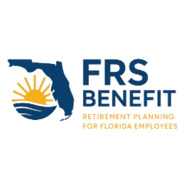What is Retirement Planning and Why It Matters
Retirement planning is the strategic process of determining retirement income goals and the actions required to achieve them. It involves identifying sources of income, estimating expenses, implementing a savings program, and managing assets and risks. At its core, effective retirement planning ensures financial independence, security, and peace of mind in your later years.
Whether you’re in your 20s or approaching retirement, proactive planning is essential. Without it, you risk outliving your assets or having to rely on others for support.
The Key Components of a Solid Retirement Plan
1. Assessing Your Retirement Goals
Begin with clarity. How do you envision retirement? Do you see yourself traveling the world, starting a business, or enjoying a quiet life in the countryside? Your retirement goals will determine how much money you’ll need.
Key questions to consider:
-
At what age do you plan to retire?
-
What lifestyle do you want in retirement?
-
Will you have dependents or health concerns to consider?
These answers will guide your income and savings strategy.
2. Estimating Future Expenses
Understanding anticipated retirement expenses is vital. While some costs may decrease—like commuting or work-related expenses—others, such as healthcare, may increase.
Typical retirement expenses include:
-
Housing (mortgage, rent, maintenance)
-
Food and groceries
-
Utilities and transportation
-
Insurance premiums
-
Healthcare and medical expenses
-
Travel and leisure
-
Taxes
Factor in inflation and potential lifestyle changes. For most, planning for 70-80% of pre-retirement income is a safe benchmark.
3. Determining Retirement Income Sources
To fund your retirement, you’ll rely on a mix of income streams. Diversification here is essential.
Common retirement income sources:
-
Social Security Benefits: Available starting at age 62, though delaying increases your benefits.
-
Employer-Sponsored Plans: Such as 401(k)s or 403(b)s, often with employer matching.
-
Individual Retirement Accounts (IRAs): Traditional and Roth IRAs offer tax advantages.
-
Pensions: Fewer employers offer these today, but they provide steady income if available.
-
Personal Savings and Investments: Brokerage accounts, CDs, annuities, or real estate.
-
Side Gigs or Part-Time Work: Many retirees choose to stay active and supplement income.
4. Maximizing Retirement Contributions
Maximizing annual contributions to tax-advantaged accounts significantly boosts your future wealth.
Contribution limits (2025):
-
401(k): $23,000 (plus $7,500 catch-up for those over 50)
-
Traditional IRA: $7,000 (plus $1,000 catch-up for those over 50)
-
Roth IRA: Same as Traditional IRA, with income-based eligibility
Utilize employer matches—they’re essentially free money. Also, consider backdoor Roth conversions for higher earners.
5. Investment Strategies for Retirement
Your investment strategy should evolve as you age. Younger investors can afford more risk, while those closer to retirement should shift toward capital preservation.
General strategy by age:
-
20s to 30s: Focus on growth with stocks and equity-based funds.
-
40s to 50s: Begin diversification. Add bonds and reduce high-risk assets.
-
60s+: Preserve capital. Use dividend-paying stocks, high-grade bonds, and annuities.
Key tip: Rebalance your portfolio annually to maintain your desired risk level.
6. Planning for Healthcare Costs
Healthcare can be a major retirement expense. Medicare does not cover everything.
Action steps:
-
Enroll in Medicare at 65 to avoid late penalties.
-
Consider Medigap or Medicare Advantage Plans for added coverage.
-
Plan for long-term care, which isn’t covered by Medicare. This may involve long-term care insurance or earmarking assets.
Fidelity estimates a retired couple may need over $315,000 for healthcare expenses alone.
7. Managing Debt Before Retirement
Retiring with significant debt can strain your income. Pay down high-interest debts first.
Debt reduction strategies:
-
Prioritize credit cards and personal loans.
-
Refinance mortgages or auto loans for lower rates.
-
Avoid new debt in the 5 years before retirement.
-
Consider downsizing your home to reduce property taxes and maintenance.
Being debt-free in retirement brings financial freedom and less stress.
8. Tax-Efficient Withdrawal Strategies
The order in which you withdraw from your accounts impacts how much you keep after taxes.
Suggested withdrawal sequence:
-
Taxable Accounts (e.g., brokerage accounts)
-
Tax-Deferred Accounts (401(k), Traditional IRA)
-
Tax-Free Accounts (Roth IRA)
This sequence delays taxes and lets tax-free accounts grow longer. Be mindful of Required Minimum Distributions (RMDs), which begin at age 73 for most.
9. Estate Planning and Legacy Goals
Estate planning ensures your wealth is passed on according to your wishes.
Essential documents:
-
Will: Outlines asset distribution.
-
Trusts: Useful for minimizing estate taxes and probate.
-
Power of Attorney: Appoint someone to handle finances if incapacitated.
-
Healthcare Proxy: Decide who will make medical decisions on your behalf.
Communicate with beneficiaries and update documents regularly.
10. Working with a Financial Advisor
A professional advisor can tailor your retirement plan, optimize tax strategies, and help manage investments wisely.
When selecting an advisor:
-
Look for a fiduciary with transparent fees.
-
Ensure they’re Certified Financial Planners (CFP®) or Chartered Retirement Planning Counselors (CRPC®).
-
Ask about their experience with retirement-focused clients.
While DIY planning is possible, expert guidance often prevents costly mistakes.
Conclusion: Start Planning for Retirement Today
Delaying retirement planning is a costly mistake. The earlier you start, the more time your money has to grow and the better your chances of achieving financial freedom.
Build a comprehensive plan, review it annually, and adjust as needed. A secure, stress-free retirement is possible—with the right preparation, discipline, and insight.








